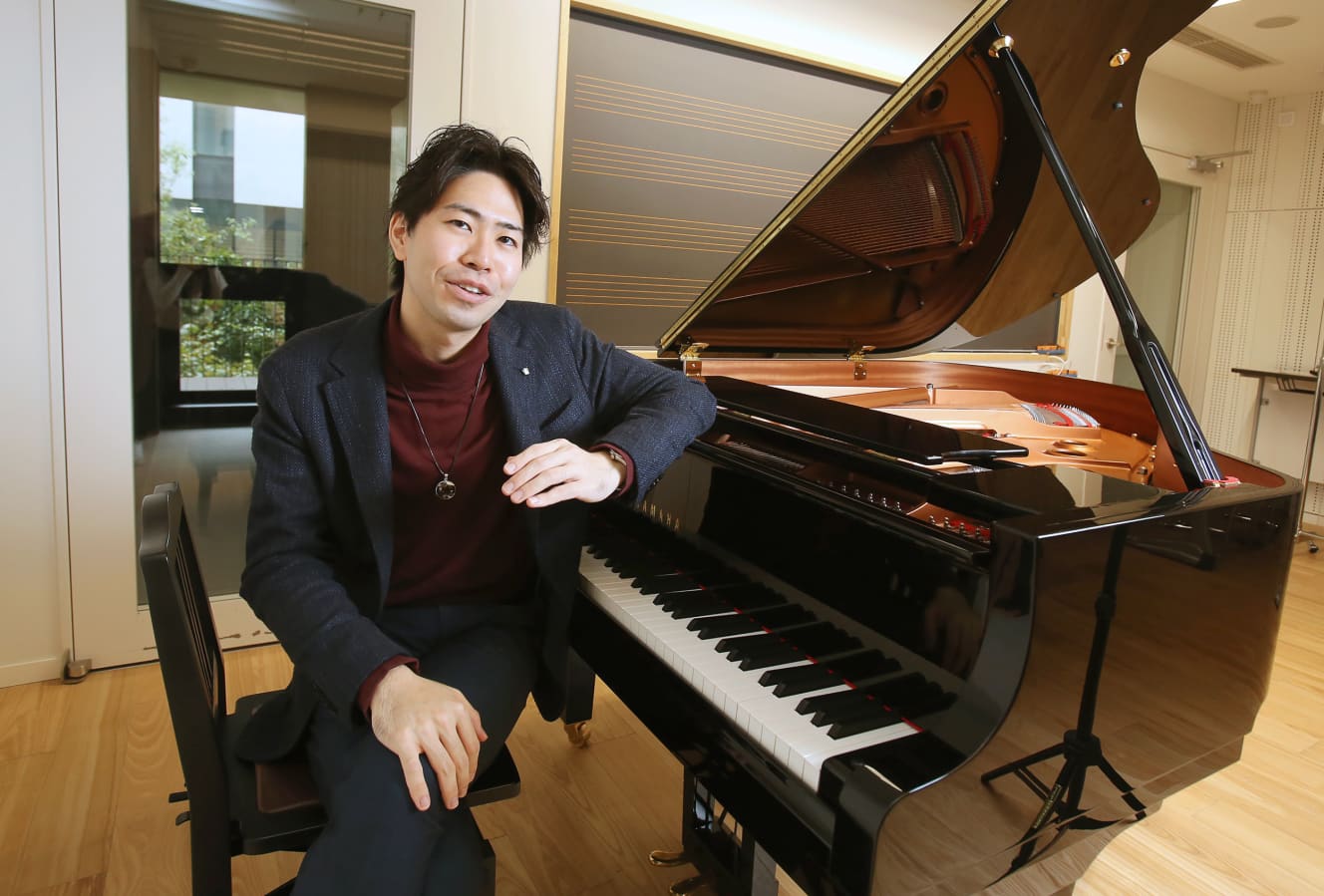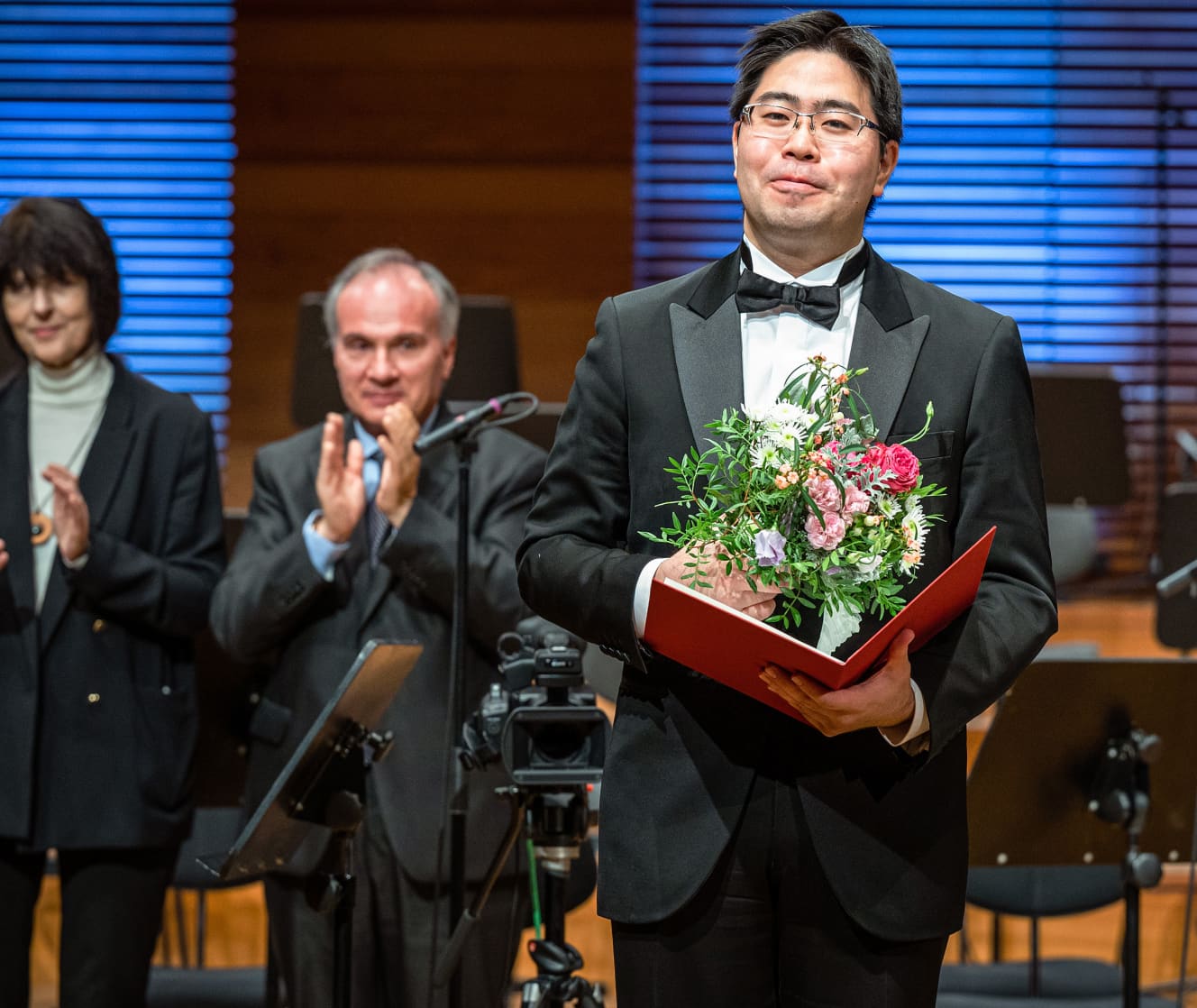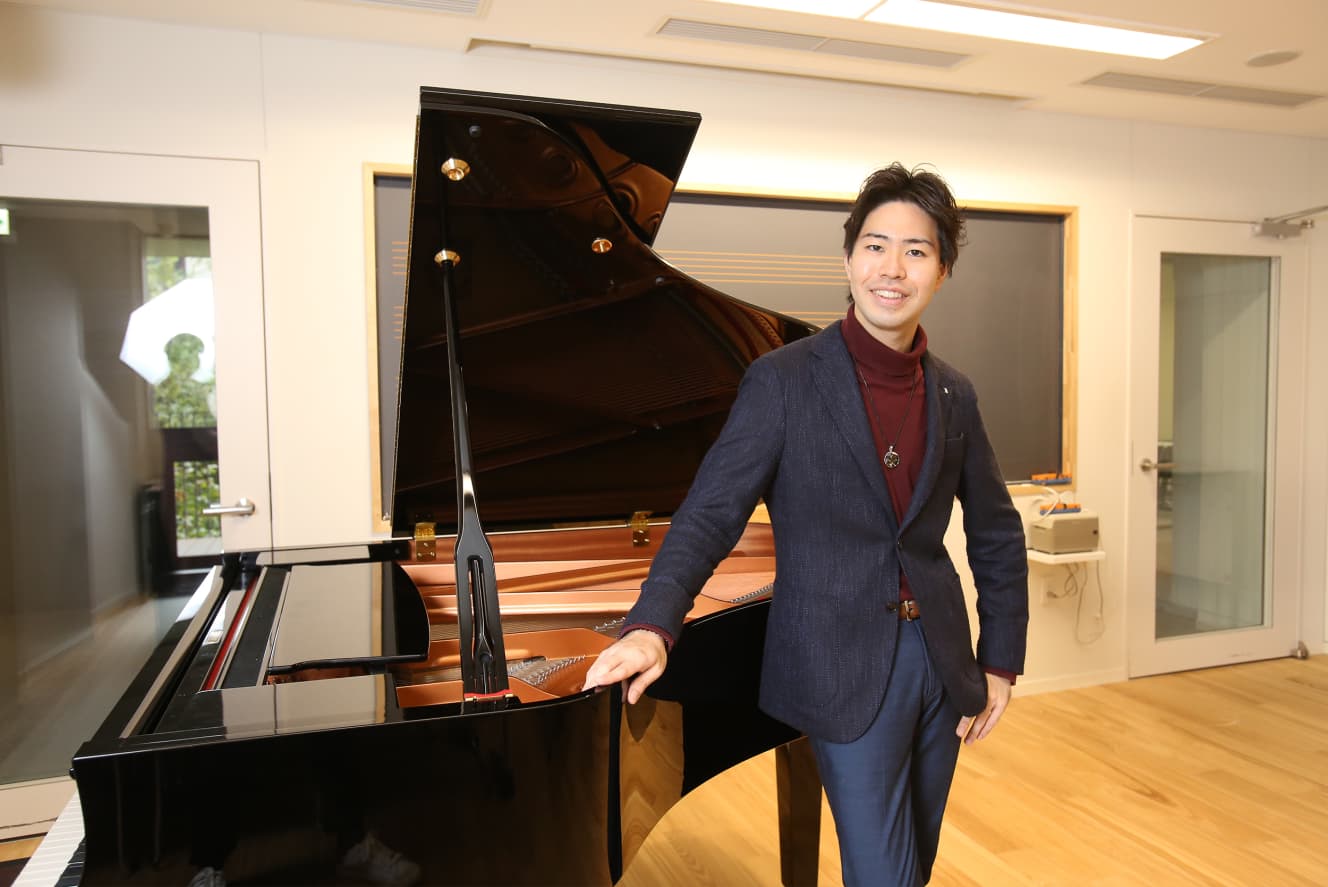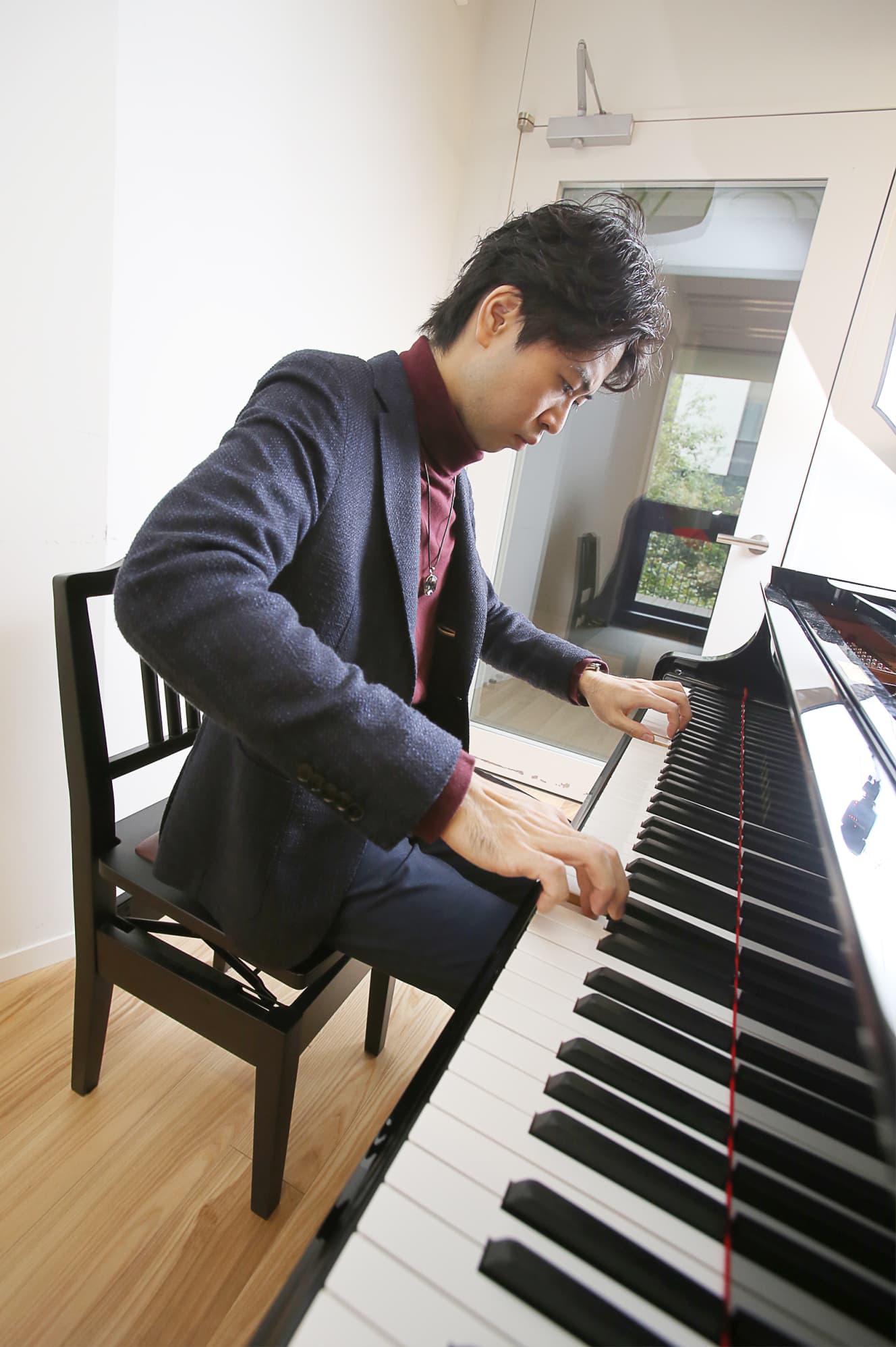Who is Shota Kaya, a unique musician from Kaisei Junior and Senior High School?
Music is playing in my head all the time I'm awake. The Next Generation of Japan's Leading Actors

I don’t listen to much music.
I don’t listen to music very much,” says Shota Kaya, 22. Shota Kaya, 22, is a promising pianist who won the top prize at the 10th Franz Liszt International Piano Competition in Germany last November.
I have listened to a lot of music,” he said. I think one of my weapons is that I probably listen to more music than other people. Right now, I have music playing in my head every waking moment. Even when I am on the move, and even when I am talking like this. So I don’t have to put on earphones to listen to it.
What he hears is not only existing classical music, but also various types of music he is currently working on, including arrangements and compositions in progress.
He started playing the piano when he was three and a half years old. My mother took me to an early childhood class.
We weren’t a musical family or anything, and that’s where I was first exposed to the piano. When I started playing, it was fun. Since then, I have continued to play the piano, except for one year before I took the junior high school entrance exam.
Kaya is a graduate of Kaisei Junior and Senior High School.
I thought I would be able to balance junior high school entrance exams and playing the piano, but it proved too difficult, so I closed off the piano at home myself. But sometimes I played the piano in the music room at elementary school.
At Kaisei Junior High School, I was rather good at schoolwork. I had a yearning to become a chemist, and until the fall of my second year of high school, I was unsure whether to pursue chemistry or piano. In my first year of high school, I went to Vienna for a short study abroad program and had the opportunity to learn piano from a local teacher, which broadened my world.
In junior and senior high school, he founded the “Kaisei Piano Society” and performed at cultural festivals, and played contrabass in the orchestra. He also participated in competitions in Japan, winning many awards, and after much deliberation, he decided to enter Tokyo College of Music instead of the University of Tokyo.
At the university, I studied piano with several teachers. I learned a lot from my teachers. The ability to always look at a piece as if you have a bird’s eye view of it as a whole, a sense of style, and the ability to process, are all very important.
His favorite music is mainly 20th century music. He likes to play “hard music,” such as the “War Sonata” by Russian composer Prokofiev and Rachmaninoff, but in recent years he has learned to play “sweet music” as well.
Last year, I entered an international competition for the first time to see if my abilities would be accepted in Europe, and it was completely different from the competition in Japan. In Japan, people say, ‘I have to play this way,’ but in Europe, they are very clear about ‘I play this way, I play this way. They are very individualistic. I felt that the judges were looking to see if I could play the piece properly and if their interpretation was sympathetic.
In her first international competition, she played Liszt and won the highest prize, as well as the Audience Award and the Saint-Saens Best Interpretation Award.
I respect Liszt. The great thing about Liszt is that he was erudite not only in music, but also in literature, art, and the arts in general. That is the kind of musician I aspire to be. I have been called a superb pianist, but I want to be a musician, not a pianist.
After winning the prize at the international competition, he says the number of requests for concerts in Japan has increased dramatically.
Now, I perform almost every week. Actually, after the competition, I went on a diet and lost about 30 kilograms. I think that’s part of the reason I’m getting more offers (laughs).
(Laughs.) I have also been offered a chance to participate in a big project next year. If I were to use a musical analogy, I would say that I am in the process of transitioning from an introduction to a theme. I would like to play a life that develops in a whimsical way, like a fantasy piece, rather than a life with a sonata form.
Profile
Kaya Shota was born in Tokyo in 2000. In 2006, he won many prizes in competitions in Japan, including the Grand Prize of the Akira Miyoshi Piano Competition. In September 2010, he made his CD debut with “Voice of Liszt. Currently a fourth-year student of the Piano Performer Course Excellence at the Tokyo College of Music. In addition to solo performances, he also performs with orchestra.



Photo by: Yuri Adachi Photography cooperation: Tokyo College of Music